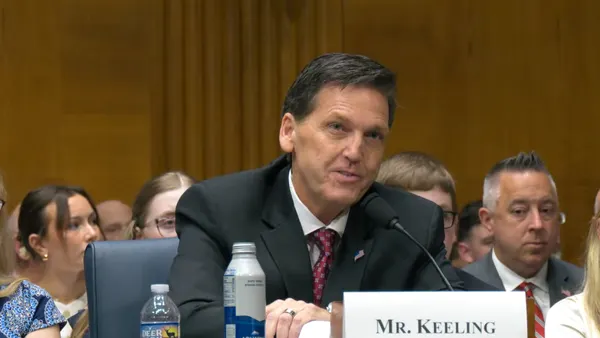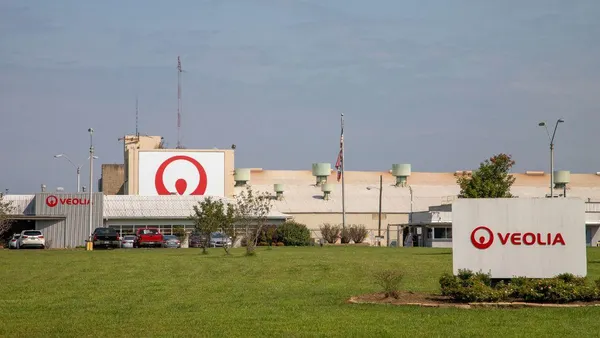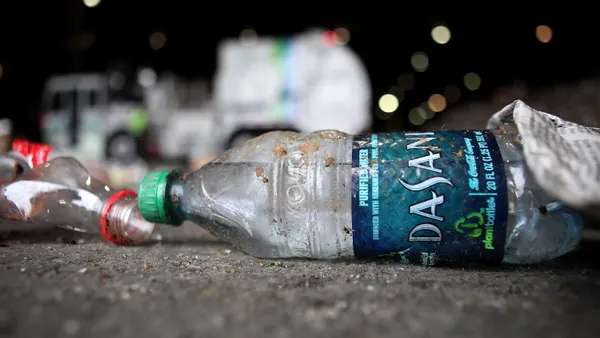Dive Brief:
- New York's Department of Sanitation has released the final version of its nonexclusive commercial waste zone proposal. As envisioned, this will include 20 zones with a potential of up to 68 contract awards. The majority of zones will have a maximum of three haulers. Select Manhattan districts may have up to four or five.
- Haulers are allowed to compete for any zone, but no company can win contracts in more than 15 zones. Consortiums, joint ventures and subcontracting will also be considered. Pricing will be negotiated directly with customers under a rate cap structure. Recycling and organics service is a requirement for any contract, and rates must be lower than refuse service.
- Initial contracts will run for 10 years with the option for extensions, and require a "small administration fee" not to exceed 1% of gross revenues. DSNY has outlined numerous requirements around fleet technology, safety training, labor standards, infrastructure and other areas that will also be considered in the selection process.
Dive Insight:
Years in the making, New York City's plan to revamp the private waste industry comes amid rising tension between the city's service providers, regulators and labor advocates. Ever since DSNY, the Business Integrity Commission and Mayor Bill de Blasio officially came out in favor of the concept in 2016, the promise of a franchise zone system has hung over just about every local industry discussion regardless of the topic.
DSNY hired a team of consultants, led by Arcadis, to begin working on the specifics under an $8 million contract initially reported by Waste Dive in 2017. That has involved ongoing stakeholder meetings — which have become somewhat contentious at times for a variety of reasons — and resulted in confirmation by DSNY in April, also initially reported by Waste Dive, that the system would be nonexclusive. In June, industry groups backed the introduction of local legislation that aims to achieve reforms without a zone system. It has yet to gain traction. Further details of DSNY's plan were teased in August, but all involved have been waiting for the final document to drop this fall.
Now that it's out, the debate will kick up around all of the various requirements and expectations. Waste Dive will be exploring all of them in greater detail soon.
DSNY has held off on making many changes to the proposal during the stakeholder process, but has indicated it may be open to doing so during the upcoming public input period. Extensive jockeying can be expected from the National Waste & Recycling Association, New Yorkers for Responsible Waste Management, Transform Don't Trash Coalition and many others.
Many of the smaller local companies believe it may signal the end of their business. Upcoming insurance and fleet requirements are among a variety of existing pressures on their viability. A transfer station capacity restriction law passed this summer, has also been discussed as a possible cost factor though evidence of that has yet to bear out. While this proposal appears to leave room for their participation, it's anticipated that a number of these companies may fold or get bought up long before franchise zones ever come to pass. A handful of large companies already dominate the majority of the market, and some, particularly Waste Connections, see themselves as well-positioned to compete in a franchise scenario.
The next step is to open the plan up to public input, conduct a required environmental review and begin working with the New York City Council on passing legislation to enact the system. Following the passage of that legislation, DSNY would aim to release an RFP by the end of 2019 or early 2020. Once contracts are awarded, customer transitions would begin by the end of 2021 and the system could be fully implemented by 2023.











